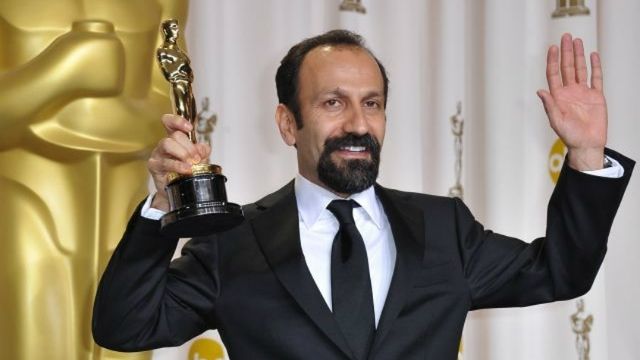Photo from RTL.fr
By Kourosh Ziabari
Contributing Writer
Cinema is a thriving industry in Iran. It has always been a platform for the artistic dissemination of thoughts and ideas that cannot make their way to the state TV, be summarized in articles in newspapers or discussed in one-sided talk shows.
Iranian cinema has been punctually winning a sad and dejected nation honor and pride in difficult and taxing days. It is well-known in our part of the world that good work and reliable products sometimes emerge under intensities and difficulties. Iranian cinema is no exception in being an industry, which has often made progress under pressure, restrictions and limitations.
Junk cinema
Despite boasting of names such as Asghar Farhadi, even Iranian cinema, like any form of art or profession produced by Iranian artists and copyrighters cannot be seen, valued and judged monolithically as there is a lot of junk art being screened by Iranian theaters and film houses these days when products by Farhadi stand out as exceptions.
Many things cannot be shown on the Iranian films, whether they are being prepared to be sent to Academy Awards or Golden Globes or just regular movies screened for average Iranian cinema-goer. I am not talking about the screening of sexual explicitness or anything even close to that. I am talking about regular and conventional expressions of love between a couple which oftentimes take the form of satirical euphemisms: “look after yourself” or “I wish I could say…”; I am talking about Iranian directors and filmmakers complaining about rampant violence in the American cinema industry while replicating the same thing in their products: frequent intervention by police to solve street fights, clash between the drivers of cars who are hurling abuse at each other after a trivial accident; family skirmishes, anger and frustration being exchanged by ex-lovers and ex-friends, dreary plots and alienated youths who fail to communicate properly with their parents and develop identity crisis.
Certain superstars who live controversial lives and are not really the ideal instances of Iranian actors and actresses and have almost never in their lives donated to any charity or contributed to the solving of a problem, readily smile for the news-thirsty paparazzi on red carpets and depending on the fees they are offered, bargain their artistic charisma and unapproachability with a few thousand dollars and appear as the icon of brand T-shirts and trousers or popcorn and junk food. This is not an abnormality, by the way, or something to be contested. It is a sad reality.
Proud cinema
Iranian cinema, however, is not only confined to films by bankrupt directors who appeal to the most melodramatic themes to generate cash at the box office. Iranian cinema is realistically represented by the likes of Asghar Farhadi, the only director from the Middle East to have won a Golden Globe Award and two Academy Awards for Best Foreign Language Film for his films “A Separation” (2012) and “The Salesman” (2017). His name made it to the Time 100 list of the most influential people in the world in 2012. The list of awards and nominations received by Asghar Farhadi is mind-boggling. The Best Screenplay Award for “The Salesman” at Cannes Film Festival 2016 is one of them.
Majid Majidi is another example of a patriotic, creative and innovative filmmaker whose work of art can be unambiguously described as ethical, pure cinema (Cinéma pur), with traces of magical realism, trying to appeal to the audience and make them think about the roots and origins and the often-ignored beauties and hardships of the life. It is not an exaggeration that many Western spectators of Majid Majidi’s films have left the screening of his movies with eyes full of tears. In 1998, Majidi’s “Children of Heaven” was nominated for an Academy Awards for Best Foreign Film but did not make it.
Iran is a male-dominated society where even a baker’s queues still function on a segregated basis where men and women are served separately when they want to buy bread. Entrepreneurial and creative female artists and filmmakers have been no different in working hard to demonstrate the value of feminine Iranian cinema.
Samira Makhmalbaf is almost the young face of Iranian cinema as produced by young, audacious, female filmmakers, who is popularly referred to as one of the most influential directors of what is considered the Iranian New Wave. The 38-year-old Iranian filmmaker and scriptwriter has directed five films and his second product, “Blackboards,” won the Jury Prize at the 2000 Cannes Film Festival. She is already a “veteran” filmmaker at this age, and studied Psychology and Law at Roehampton University in London when she was 20.
Iranian cinema is making progress in the days the country’s foreign policy decision-makers don’t make much progress on international fronts and diplomats don’t have much good news for the people. Iranian cinema is making people happy in the days news about war, chaos, mayhem, instability in the Middle East and widespread corruption kills smile on the faces of people who yearn for better lives, and find arts a shelter and cinema a medium in which they can sometimes find an expression of their desires and sometimes the response to their questions.


